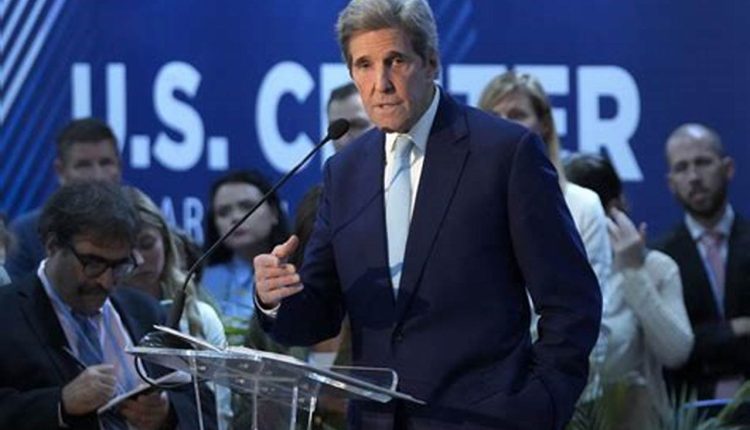U.S. State Department spokesman Samuel Warburg revealed on Thursday the main issues and priorities identified by the country’s administration, during the discussions taking place within the COP28 climate summit in Dubai on November 30 to December 12.
“COP28 is very important, as it is the first conference to evaluate the progress we have all made in achieving the goals of the Paris Agreement,” Samuel Warburg told Sky News Arabia.
He emphasised that the conference is a “unique opportunity” to mobilise the world and to significantly intensify all efforts to achieve these goals in this crucial decade.
Warburg confirmed that his country had several points to focus on during the climate summit, saying that they want to achieve strong and significant outcomes on the key issues that this year’s Conference of the Parties has asked us to negotiate, the first ambitious global stocktaking exercise under the Paris Agreement, to finalize financing arrangements, including the Loss and Damage Fund.
He also said that they will work to confront climate change in two ways. One is by improving the U.S. national actions to meet its own goals and the Paris Agreement goals. The other is by joining many efforts that the U.S. administration is making outside the COP 28 Conference of the Parties.
They also want to strengthen the results action plan and through voluntary initiatives by parties and other non-parties stakeholders to achieve the goals of the Paris Agreement, Warburg added.
This comes at a time when the U.S. Special Envoy for Climate Affairs, John Kerry said that the United States will work with China to make the relevant United Nations negotiations successful.
Cooperation between the United States and China, the world’s two largest emitters of greenhouse gases, is seen as essential to ensuring consensus during COP28.
This edition of the United Nations Climate Conference is a turning point in the history of confronting climate change, as It follows the Paris Agreement “COP21” in France in 2015, which was the first legally binding global pact to limit global warming to less than 2 degrees Celsius.
The agreement also strives to keep the temperature rise to no more than 1.5 degrees Celsius compared to pre-industrial levels.


